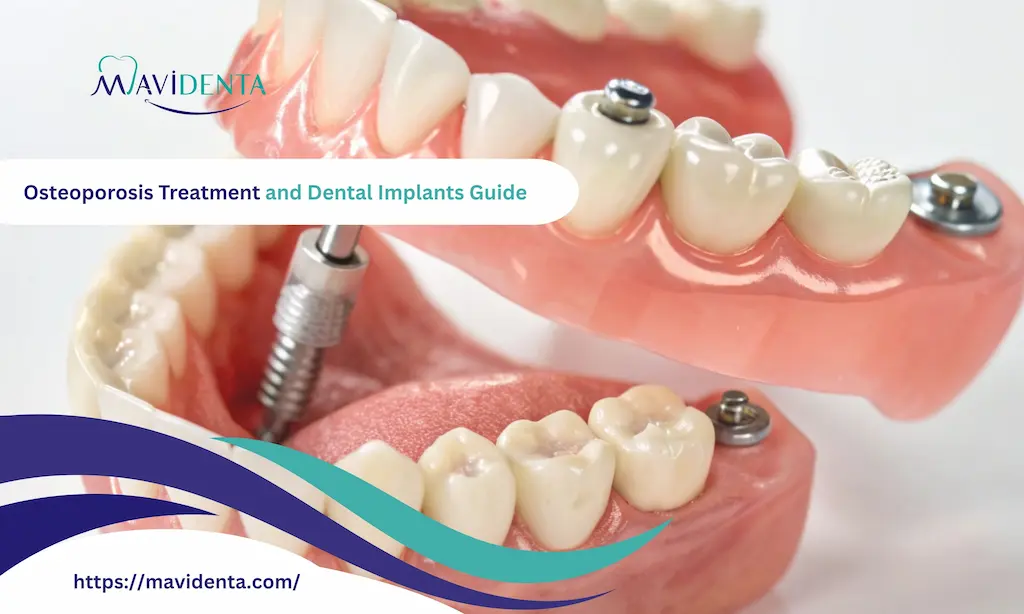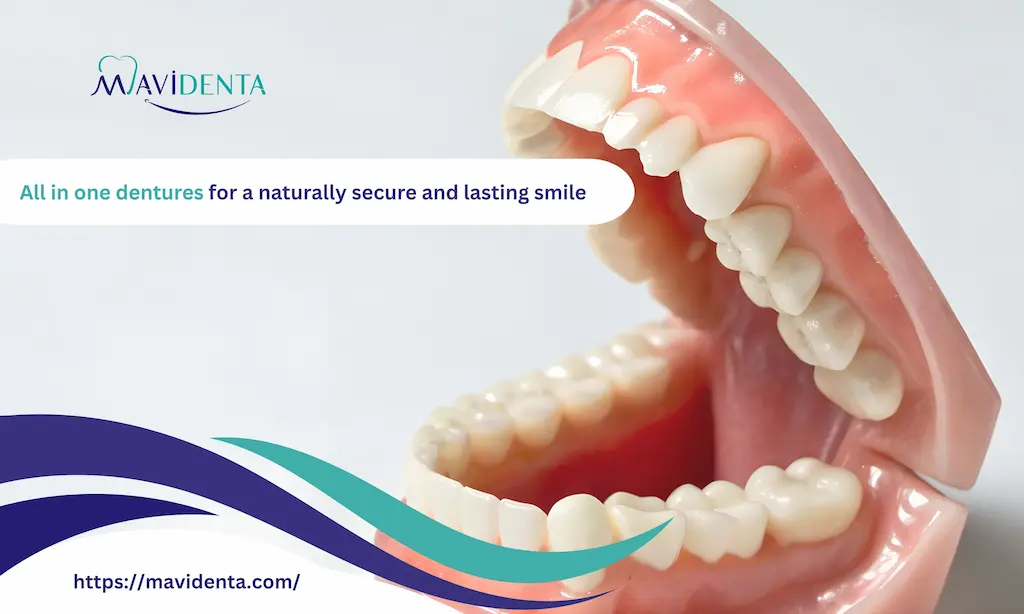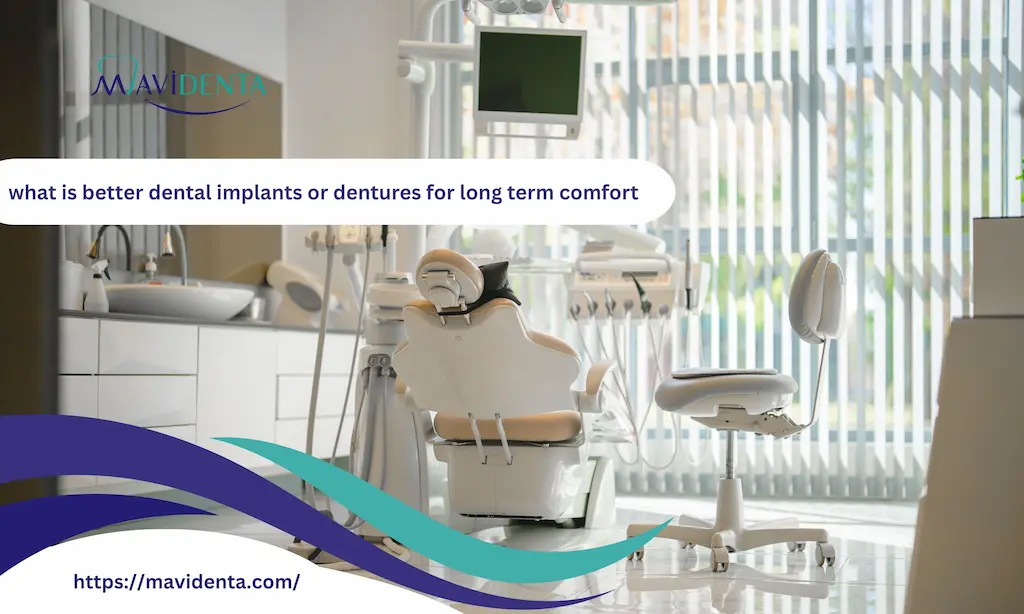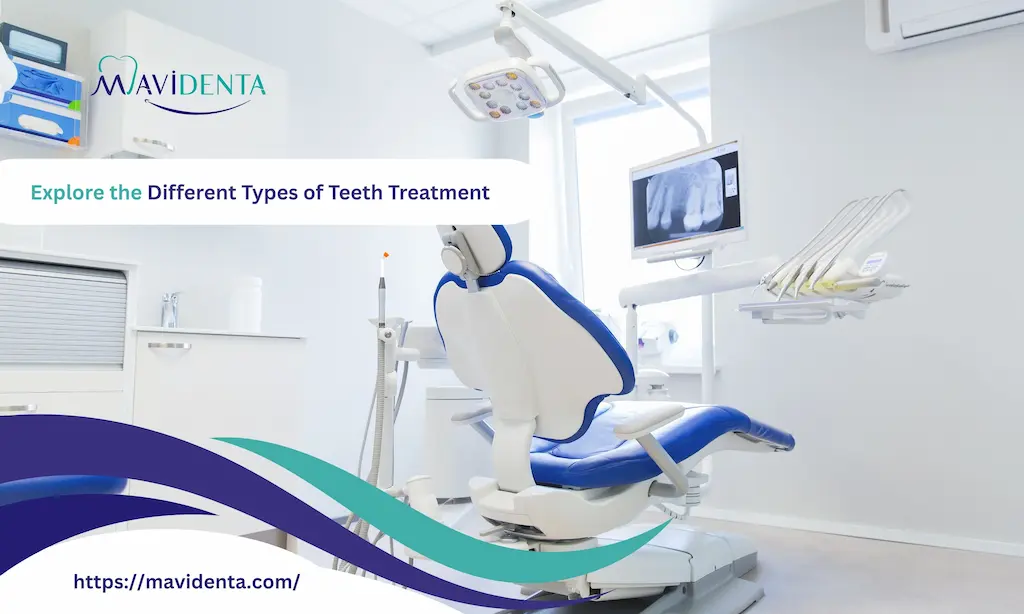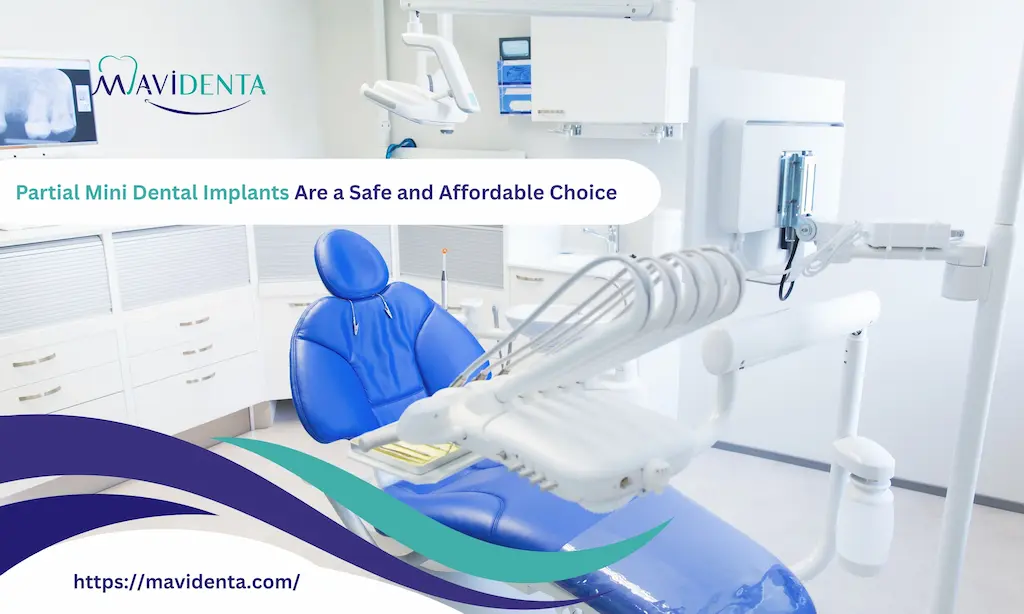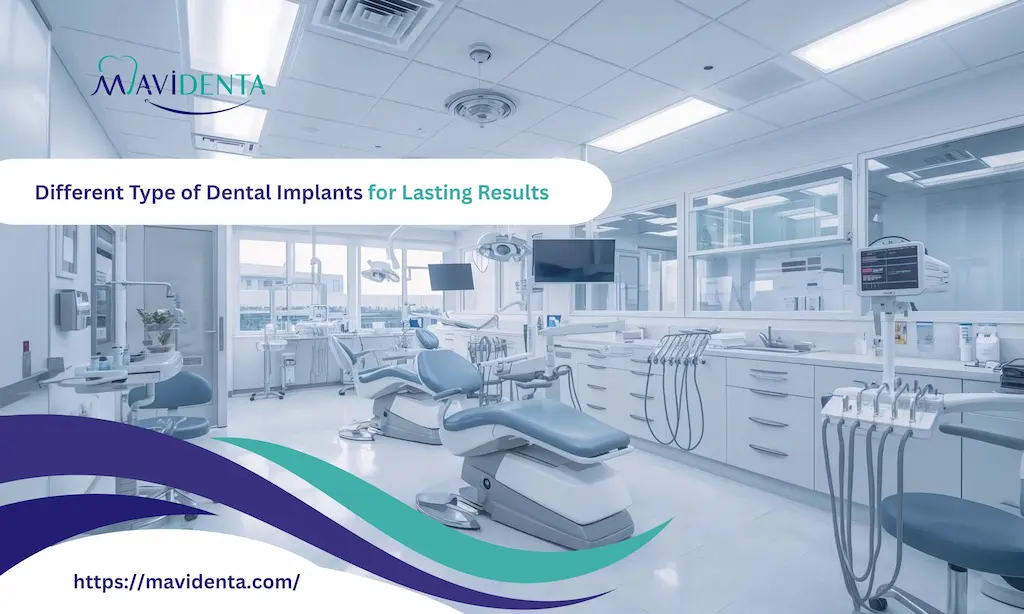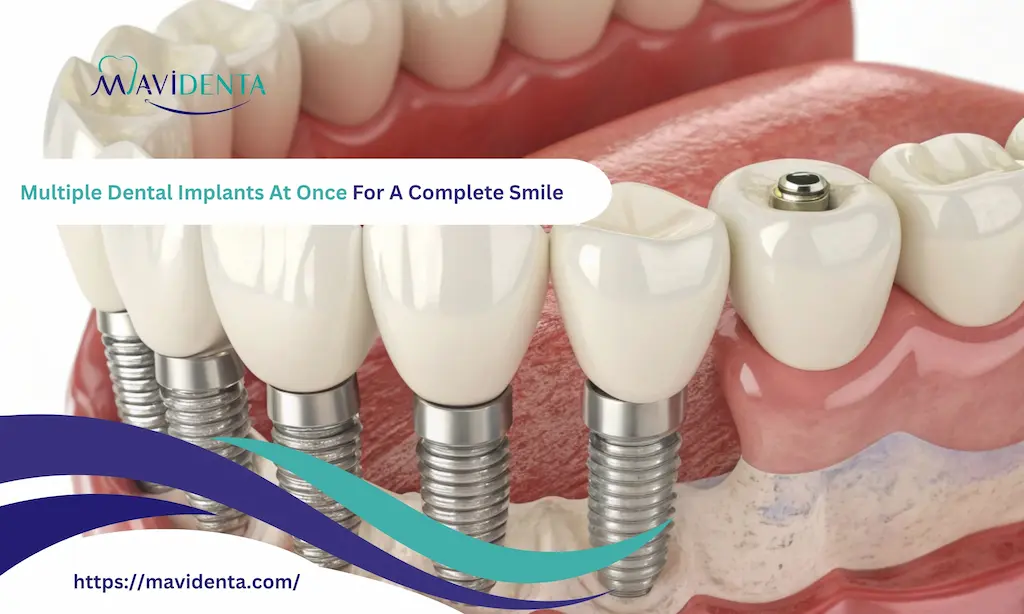When bones get weak, everything changes — even how you bite or smile. It’s the same with teeth. If the bone can’t hold strong, implants need extra care. That’s where osteoporosis treatment and dental implants come together. It’s not about rushing, it’s about doing it right. The doctor checks your bone, your medicine, your healing. At Mavidenta, they move slow, steady, and safe so you get real teeth that stay.
Understanding Osteoporosis and How Does It Impact Dental Health?
When you hear the word osteoporosis, you might think of fragile bones in the hips or spine. It’s not just about hips or knees — the same bone that holds your teeth starts losing strength. That’s why people with osteoporosis sometimes notice teeth moving or dentures not sitting right anymore. The jaw changes slowly, and you can feel it.
When the bone around teeth thins, it doesn’t hold them firm. Chewing gets harder, and small cracks can appear over time. It’s not pain at first, just discomfort. That’s how bone loss starts showing inside the mouth without you realizing.
That’s where osteoporosis treatment and dental implants come in together. The goal isn’t just new teeth it’s bringing back strength where it’s fading. At Mavidenta, doctors plan carefully for each patient, building bone first, then restoring the smile safely, step by step.
Why Is Assessing Bone Density Important Before Dental Implant Surgery in Osteoporotic Patients?
- Before any implant, the dentist needs to know how strong the jawbone really is. Weak bones can’t hold an implant firmly, and that’s why checking bone density matters most.
- In osteoporosis treatment and dental implants, testing bone helps plan the size, angle, and number of implants safely. It prevents failure later.
- Many patients don’t realize that dental implants and osteoporosis are closely linked — thin bones can’t heal as fast or bond with the metal post properly.
- Some medicines, especially bisphosphonates, make bone healing slower. That’s why clinics follow Bisphosphonates and dental implants guidelines to choose the safest time for surgery.
- Scans like DEXA or 3D imaging show where the bone is thickest, helping doctors decide if grafting or support treatment is needed first.
- At Mavidenta, doctors take this step seriously — no guesswork, just clear, careful checks to build a safe base before placing the implant.
- Bone strength is the foundation. Without it, even the best implant can’t last — that’s the truth behind real, lasting smiles.
Explore the Different Types of Teeth Treatment.
What Are the Risks of Dental Implant Failure in Patients with Osteoporosis?
- When bones are weak, implants face a tougher job. The metal post needs strong bone to hold on, and osteoporosis makes that bond harder to form. That’s why failure risk is higher if bone isn’t treated first.
- In osteoporosis treatment and dental implants, the main problem is slow bone healing. The jaw doesn’t grow around the implant as it should, so it can loosen over time.
- Some patients take bisphosphonates, and while helpful for bone strength, these drugs can slow recovery — one reason why Bisphosphonates and dental implants guidelines exist.
- If ignored, weak bone may lead to small infections, poor gum healing, or even implant loss within months.
- Another risk comes with osteopenia and dental implants — early bone thinning that often goes unnoticed until an implant struggles to stay fixed.
- With careful screening and customized plans, these risks drop sharply.
- At Mavidenta, every implant for patients with dental implants and osteoporosis starts with deep scans, real planning, and post-care support to keep the new tooth stable for years.
Explore the Pros and cons of full dental implants guide.
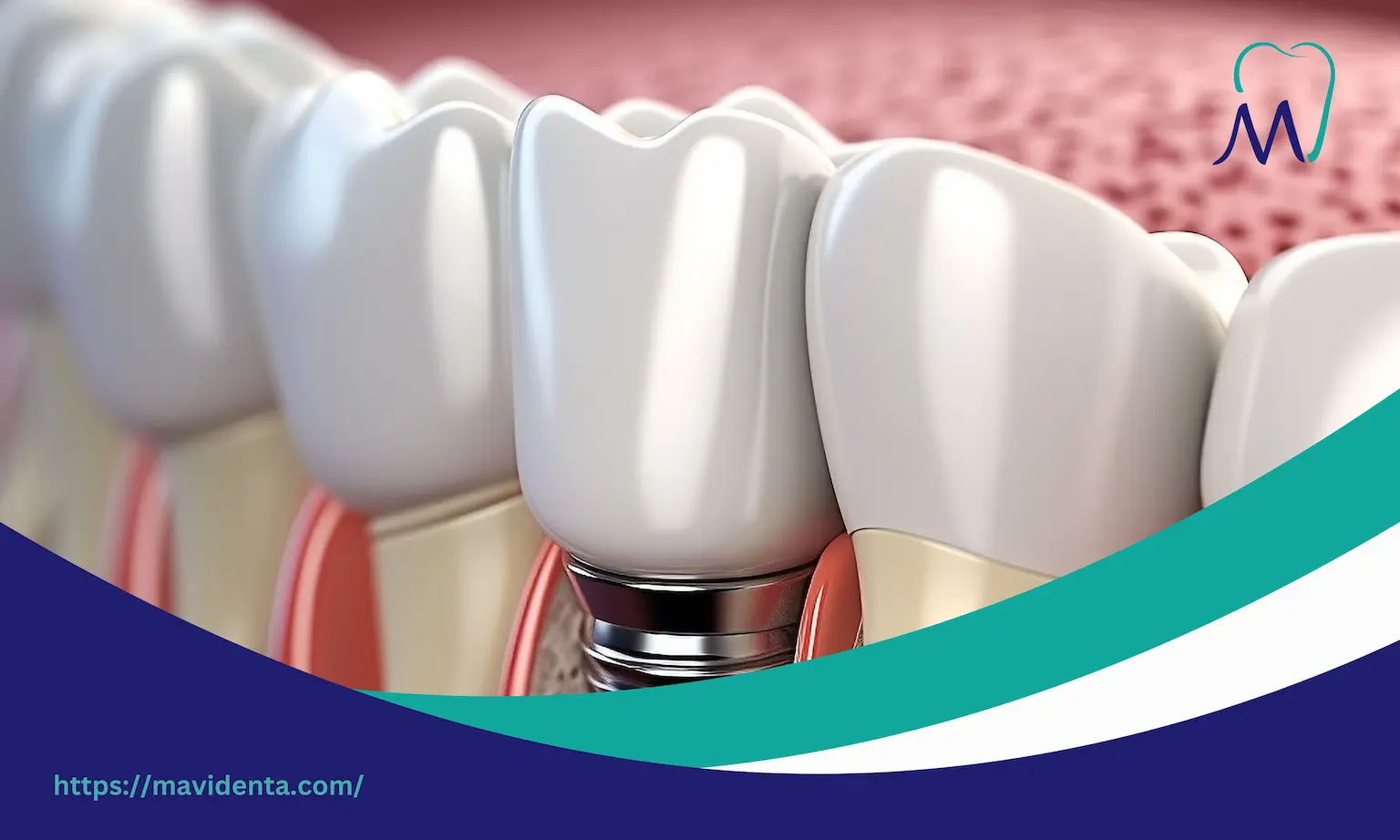
How Can the Risk of Osteonecrosis Be Managed in Osteoporosis Patients Receiving Dental Implants?
- Osteonecrosis sounds scary — it means the bone doesn’t heal and parts of it may die slowly after surgery. It’s rare, but patients with osteoporosis need extra care to avoid it.
- The biggest cause is certain medications used for bone loss, especially bisphosphonates or similar drugs. That’s why knowing your dental implants and osteoporosis medications list before surgery is vital.
- In osteoporosis treatment and dental implants, doctors reduce risk by working closely with your physician. They may adjust medication timing or pause treatment if needed.
- Following Bisphosphonates and dental implants guidelines keeps everything safe — proper sterilization, gentle surgical techniques, and no unnecessary pressure on healing bone.
- After surgery, small habits matter: soft brushing, mild rinses, and avoiding smoking or alcohol. These simple steps help blood flow and prevent bone infection.
- If any swelling, pain, or numbness appears, you tell your dentist immediately. Early care stops problems before they grow.
Explore the Different Type of Dental Implants for Lasting Results.
What Surgical Techniques Are Used for Osteoporosis Treatment and Dental Implants?
Aspect | Details |
|---|---|
| Surgical Focus | Calm, precise hand — prioritizing stability over speed to protect fragile bones. |
| Implant Adjustments | Modified drilling angles and implant depths to suit weak bone structure. |
| Bone Regeneration | Use of small grafts or regenerative membranes to rebuild bone strength. |
| Implant Strategy | Shorter or angled implants chosen in osteopenia cases to reduce stress. |
| Cost Implications | Higher cost due to careful techniques and longer preparation, but lower risk of failure. |
| Technology | Digital precision tools used at Mavidenta to ensure accuracy. |
| Patient Focus | Customized approach for osteoporosis and bone loss, with long-term success in mind. |
What Post-Operative Care and Monitoring Are Needed for Patients with Osteoporosis and Dental Implants?
- After surgery, the first thing is rest. Don’t rush to eat hard food or talk too much. Your bones need time to catch up. It heals slower when you have osteoporosis. That’s normal, don’t worry.
- Keep your mouth clean, but gently. Use soft brushing, warm salt water, and no harsh rinsing. If something bleeds a little, stop and call your doctor.
- Some medicines, especially dental implants and osteoporosis medications, can slow healing. Tell your dentist everything you take, even vitamins. They follow Bisphosphonates and dental implants guidelines for safety.
- The doctor will see you often at first to check how the implant feels, if the gums look okay, if the bone holds strong. Tiny scans, soft touches, nothing painful.
- At Mavidenta, care doesn’t stop after surgery. They call, they check, they guide. It’s slow and careful, but it’s what makes osteoporosis treatment and dental implants safe and lasting.
How Can Patients with Osteoporosis Choose the Right Dental Implant Clinic?
- Start with trust, not price. The best clinic isn’t the cheapest — it’s the one that listens first. In osteoporosis treatment and dental implants, planning is everything, and a rushed plan can ruin healing.
- Ask how many dental implants and osteoporosis cases the doctor handled before. Real experience shows in small details — how they scan, how they explain, how they check bone strength before surgery.
- Make sure the clinic follows Bisphosphonates and dental implants guidelines. These rules protect your bone if you’re on medication for osteoporosis. A good dentist will never skip this step.
- Look for clear costs and transparency. If someone hides details about dental implants with bone loss cost, that’s a red flag. Honest clinics explain every step before you decide.
- Ask about aftercare — who checks on you after surgery, how often, and what support they give. Real clinics don’t disappear once the implant is done.
- At Mavidenta, doctors take time with each patient, scan carefully, and explain everything in simple words. The goal isn’t just a new smile — it’s safety, comfort, and bone that stays strong for life.
How to Choose the Best Dental Implant Clinic in Istanbul?
Why is Mavidenta the Best for Dental Implants ?
- People come to Mavidenta because it feels calm the moment you walk in. No rush, no pressure. Doctors take time to listen especially for dental implants osteoporosis patients, where bone care is sensitive and needs patience.
- In every case, they plan step by step. Scans, bone checks, full talks about medicines, and how osteoporosis treatment and dental implants can work safely together. You never feel left out of the plan everything is clear before it starts.
- The team follows international safety rules, uses digital guides, and adjusts techniques for fragile bone. That’s why their implants heal better and stay stable longer.
- Payment is simple you can pay cash or by card, whatever makes you comfortable. No hidden costs, no stress.
- What really makes Mavidenta different isn’t just skill it’s the feeling that someone actually cares if you heal right. They remember your name, your case, your next check-up.
- It’s not about fancy ads it’s about real people, safe steps, and smiles that last. That’s what makes Mavidenta the quiet, trusted choice for life-changing dental work.
Conclusion
People with osteoporosis can still have strong, lasting teeth if treatment is done the right way. Osteoporosis treatment and dental implants need care, patience, and the right medical plan. The doctor studies the bone, uses gentle surgery, and follows up closely to make sure healing goes well. At Mavidenta, every step is done carefully to protect weak bone and build a stable smile. It’s not only about replacing teeth — it’s about bringing comfort, strength, and confidence back. With proper care, you can chew, smile, and live normally again.
FAQs
Can I get dental implants if I have osteoporosis?
Yes, you can — but your bone condition must be checked first to ensure proper support.
Does osteoporosis make dental implants unsafe?
Not unsafe, but it requires special planning and gentle surgical techniques.
Who is not suitable for dental implants?
People with uncontrolled bone loss or untreated gum disease should wait for medical care first.
Do osteoporosis medications affect implants?
Some, like bisphosphonates, may slow healing, so timing and dosage are key.
How does osteoporosis affect jawbone strength?
It reduces bone density, which can make implant anchoring more challenging.
Can bone grafting help osteoporotic patients?
Yes, grafts help rebuild bone volume and improve implant stability.
What is the success rate of implants in osteoporosis patients?
With the right care, success rates remain high — often above 90%.
Are dental implants painful for osteoporosis patients?
No, surgery is done under local anesthesia, and most patients feel only mild soreness.

